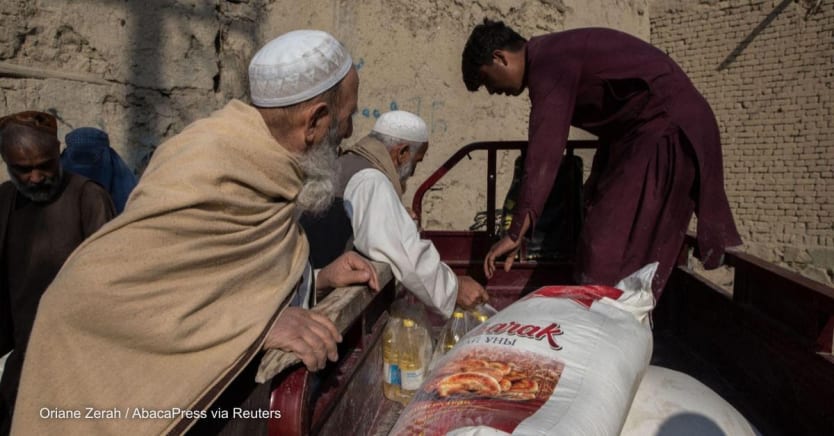
The United Kingdom government is behaving like it is “threatening to starve Afghans” to gain “leverage over the Taliban,” according to former International Development Secretary Rory Stewart.
Speaking to members of Parliament in the Foreign Affairs Committee, Stewart said “mad ideas” had convinced international donors they could “somehow blackmail the Taliban” but the prospect of influencing the extremist group, who took over Afghanistan in August, was “completely unrealistic” because troops have already left.
A severe humanitarian crisis in Afghanistan is feared to have already begun, with 23 million Afghans at risk of hunger, according to the United Nations. The economy is in freefall amid international financial sanctions, causing more poverty.
“We have created this humanitarian situation, and at the moment I am very worried we are not owning up to our responsibility to help resolve it.”
— David Richards, former chief of defense staffStewart, who traveled across Afghanistan on foot in 2002, said the U.K. government was “paralyzed” by fears that the Taliban might obtain official development assistance sent to the country, including through taxes.
“It’s immoral, impractical, and I’m afraid it shows extreme small-minded bitterness,” he said.
Stewart’s comments accorded with increasing concern among NGOs about how much U.K. aid is reaching Afghanistan as a crisis looms. While the government increased aid earmarked for the country in the wake of the Taliban takeover to £286 million ($382.76 million) — still less than in 2019 — just £35 million had been disbursed as of Oct. 18, a written question by Shadow Development Secretary Preet Gill revealed.
James Cleverly, minister for the Middle East and North Africa at the Foreign, Commonwealth & Development Office, said the government planned to spend the rest of the money “by the end of this financial year,” which ends in April 2022.
Devex asked FCDO for an updated figure on how much U.K. aid has been released to Afghanistan and was directed to an Oct. 31 press release in which the U.K. promised £50 million to a U.N. appeal for the country, but gave no indication as to when the funds would be released. The money was drawn from the £286 million already promised. FCDO did not respond to a request for comment on Stewart’s allegations.
“The risk of what the U.K. and other countries are doing at the moment is we are acting as though we are threatening to starve Afghans in the completely unrealistic belief that that’s somehow going to give us leverage over the Taliban,” Stewart told MPs.
Stewart continued: “What worries me is that when the prime minister is reluctant to provide proper development and humanitarian support, part of the problem is actually business embarrassment about that August evacuation. We’re not looking at this clearly … the country is collapsing rapidly … 20 million people are now on the edge of starvation.”
David Richards, a former chief of defense staff who also served in Afghanistan, told MPs that with the Afghan winter arriving, there was a “pressing humanitarian need to look after millions of people who are in the predicament they’re in because of our decisions — we seem to forget that, the Americans seem to forget it.”
He added: “We have created this humanitarian situation, and at the moment I am very worried we are not owning up to our responsibility to help resolve it. ... We now need to accept our defeat, work with our eyes wide open with the Taliban … and preserve life in the short term but preserve influence into the longer term.”
FCDO is currently facing the prospect of a legal challenge by British lawyers campaigning on behalf of female judges stranded in Afghanistan — a group mentioned by both speakers.
“There are very vulnerable people who if we don’t get them out now, the female judges are a really good example of this, are likely to be at very serious risk in a few months’ time,” said Stewart. He urged the government to take advantage of a “window of opportunity” while the Taliban were still allowing Afghans to leave the country on commercial flights.




